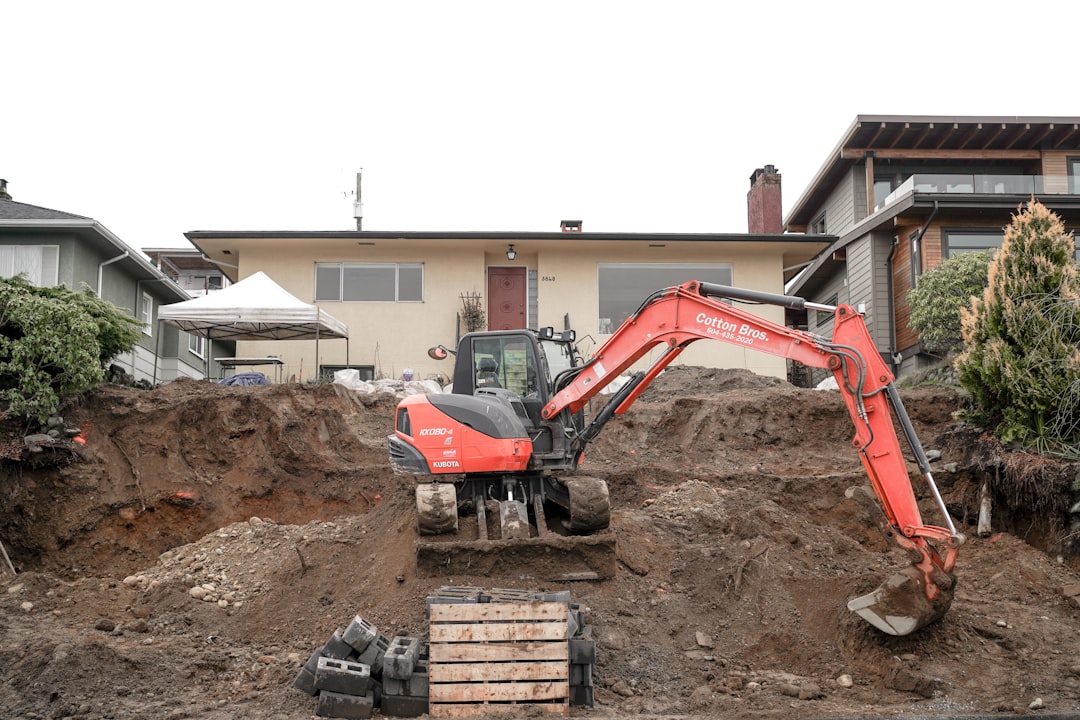Heating in Buffalo Guide for Residential Construction
Construction Cost Hub – Buffalo, NY
Price source: Costs shown are derived from our proprietary U.S. construction cost database (updated continuously from contractor/bid/pricing inputs and normalization rules).
Eva Steinmetzer-Shaw
Head of Marketing
Why Heating in Buffalo Matters for Residential Construction
Buffalo winters test every home’s heating system. For contractors, heating in Buffalo isn’t just a buzzword—it’s a survival plan. Temperatures regularly plunge below zero, lake-effect snow piles up, and energy costs spike whenever a furnace hiccups. Choosing the right heating design, budgeting accurately, and scheduling labor at the perfect moment can make or break profit margins on a single-family build or remodel. Current installation costs range from $1,486–$1,802 per opening per opening, depending on system complexity and labor rates.
The Cost Accuracy Challenge
Traditional estimates rely on static price books and paper takeoffs. By the time a quote reaches the homeowner, copper pipe or high-efficiency furnace pricing may have changed. Our platform eliminates that lag. Real-time voice interfaces capture measurements as you walk the jobsite, pull current supplier pricing instantly, and output a polished proposal before you leave the driveway.
Key Advantages for Buffalo Heating Projects
- Live regional material pricing—no more allowances that sabotage trust
- Automated labor calculations adjusted for Buffalo’s prevailing wage data
- Instant comparison of gas, electric, and dual-fuel system options
- AI-driven load calculations tied directly to blueprint takeoffs
- Branded quote PDFs ready to e-sign on the spot
Understanding Buffalo’s Heating Code Landscape
The 2020 New York State Energy Conservation Construction Code mandates higher insulation values, sealed ductwork, and smart thermostats in new homes. Our platform embeds those code requirements directly into every estimate line item. When you select a 96%+ AFUE furnace, duct sealing and programmable thermostat allowances populate automatically, ensuring compliance from the start.
Step-by-Step: Generating a Heating Estimate
- Open the mobile app and start a voice session.
- State the project address; the platform geolocates Buffalo’s climate zone.
- Walk the space or review the uploaded blueprint. Speak dimensions: “Main level, 1,200 square feet; basement, 8-foot ceilings.”
- Choose system type verbally: “High-efficiency gas furnace with two-stage blower.”
- Queries local suppliers and pulls current equipment and material pricing.
- Applies regional labor rates, tax, permit fees, and utility rebate data.
- A complete estimate appears on screen—ready to email, print, or convert to an invoice.
Pro Tips for Lowering Heating Costs in Buffalo Homes
- Upgrade duct insulation: R-8 ducts in unconditioned attics slash heat loss by up to 25%.
- Specify ECM blower motors: They cut electrical consumption even when the furnace cycles off.
- Leverage NYSERDA rebates: Flags every eligible line item automatically.
- Plan for zoning: Dual thermostats reduce fuel use in seldom-occupied rooms.
- Include smart vents: Dynamic airflow balancing fixes cold spots without oversizing equipment.
Blueprint Takeoffs: Precision on Day One
Uploading a PDF or CAD file triggers our computer-vision engine. Walls, windows, and insulation layers are recognized, and a manual cross-check tool lets you verify any tricky attic knee wall or bonus room. Because Buffalo floor plans often include mudrooms and enclosed porches, the AI flags transitional spaces so you can decide whether to condition or isolate them.
From Estimate to Invoice—Seamlessly
Once the homeowner approves the proposal, a single click converts the estimate into a fixed-price contract. Every task—demo, rough HVAC, electrical tie-in, duct sealing, startup—receives a timeline and cost code. Field crews access tasks through the mobile dashboard, updating progress with voice notes. When the last register is balanced, you generate an invoice populated with actual material usage and labor hours, ensuring razor-thin variance against the original quote.
Why Residential Contractors Choose Our Platform
- Faster close rates: Quotes delivered same-day while competitors take a week
- Fewer change orders: Real-time pricing and code inclusion upfront
- Integrated documentation: Photos, notes, and inspection reports stored in one place
- Customer confidence: Branded, transparent line items build trust
- Scalable growth: Duplicate winning templates for the next West Seneca or Amherst build
Getting Started
Ready to dominate heating in Buffalo? Visit CountBricks.com to schedule a live demo. Our onboarding team will migrate your existing price sheets, customize labor categories, and train your crew in under an hour. Winter may be brutal, but your margins don’t have to be.
Case Snapshot: Elmwood Village Furnace Upgrade
A 1920s two-story in Elmwood Village needed a full heating overhaul. The homeowner feared hidden costs; the contractor feared outdated radiators and tight basements. By using our platform, both worries vanished in one site visit.
How We Delivered
- Voice Captured Data: In 18 minutes, the contractor measured six rooms, chimney chase, and crawlspace without a clipboard.
- Real-Time Pricing: A 96% AFUE furnace and sealed duct package pulled direct Buffalo distributor costs—saving $1,140 compared to last month’s catalog.
- Automatic Rebates: The platform applied a $600 NYSERDA efficiency incentive, noted on the homeowner’s quote for immediate transparency.
- Permitting Made Easy: Inserted Buffalo mechanical permit fees and required inspection tasks into the schedule, avoiding mid-project delays.
Outcome
The job closed at 9% higher profit than projected, with zero change orders and a five-star review praising “speedy, precise quoting.” Materials delivered exactly matched the AI takeoff quantities—no surplus returns, no emergency runs for extra flex duct.
Lessons for Your Next Project
- Capture complexity early. Older Buffalo homes hide surprises; a live voice walk-through ensures nothing slips.
- Leverage real-time cost data. Even a week’s delay can swing furnace pricing. Instant updates lock margins.
- Show the math. Line-item rebates and code inclusions build homeowner trust and cut approval times.
Next Steps
If you tackle vintage home renovations, schedule your personalized workshop at CountBricks.com. Bring a recent plan set and we’ll build a live heating estimate together—proving that technology, not guesswork, drives Buffalo’s warmest homes.

